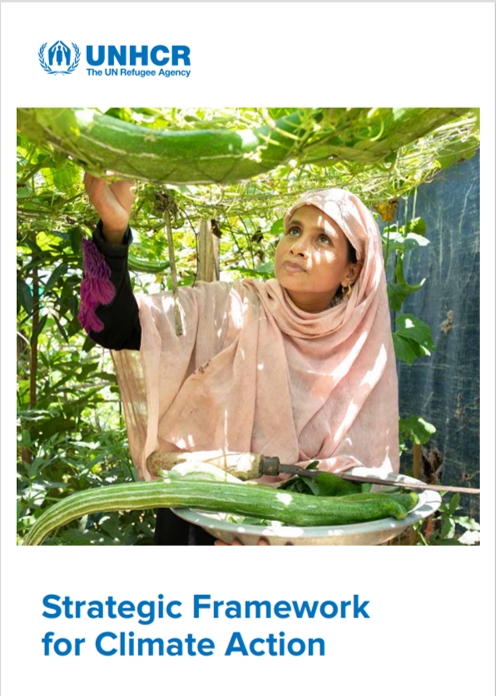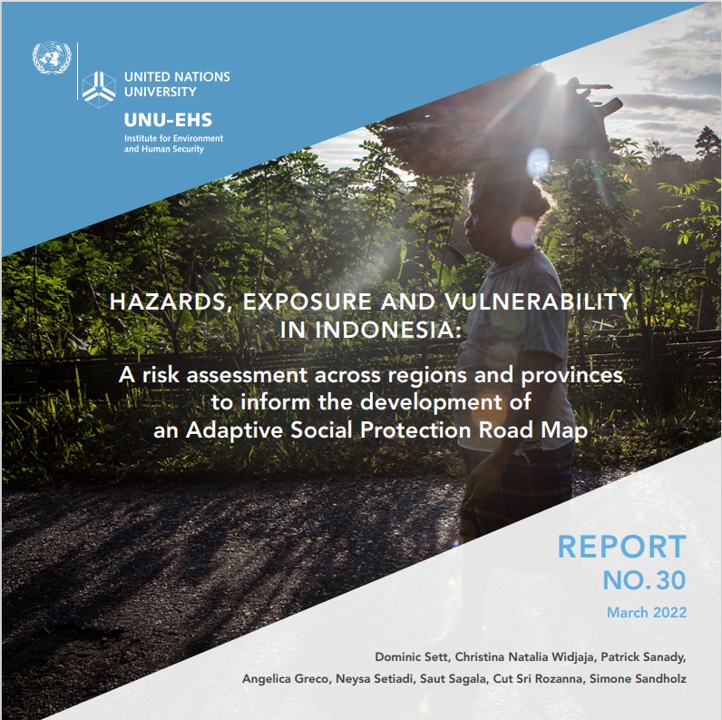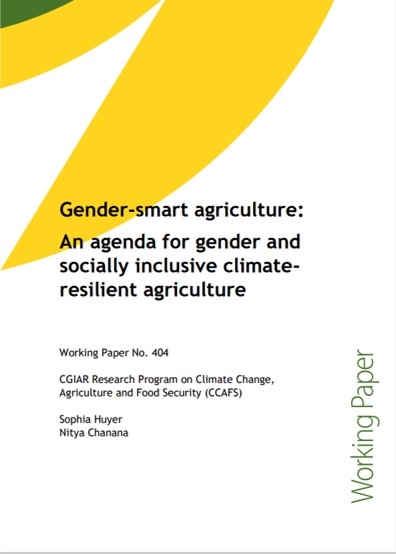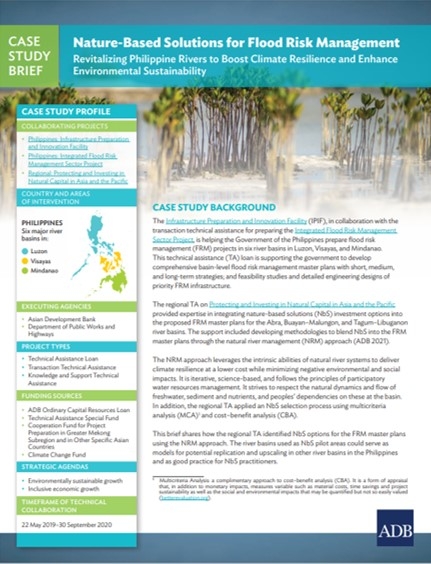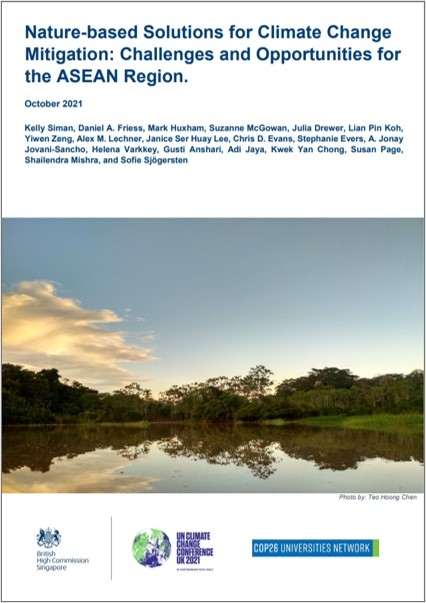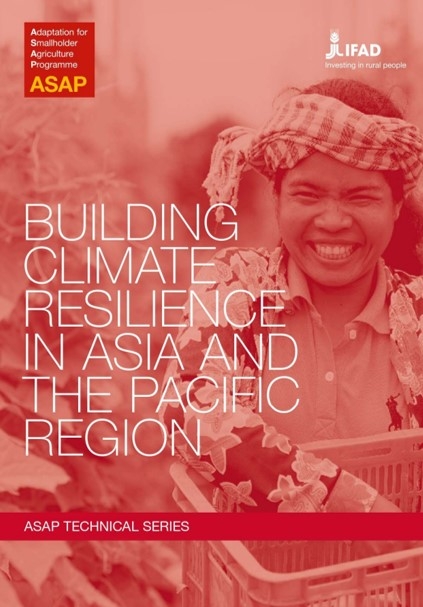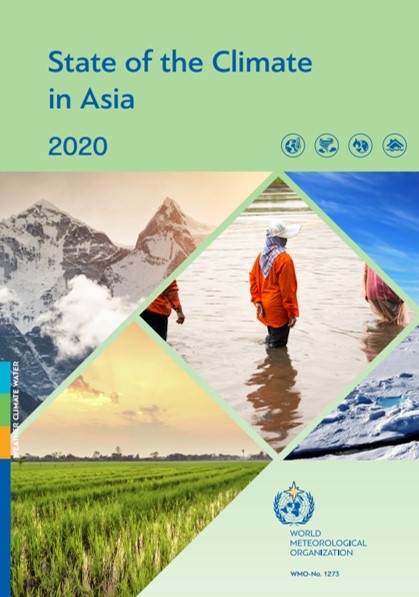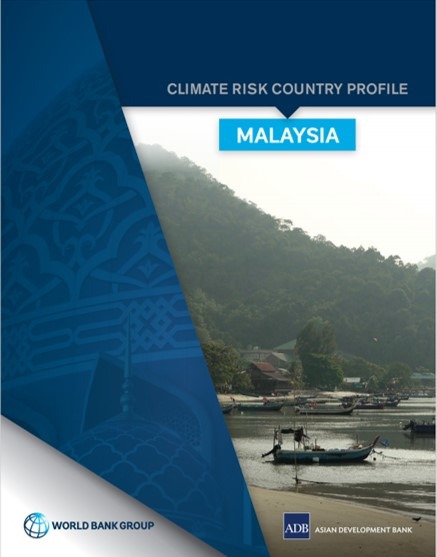Harvested Publications
Introduction This document sets out the parameters for UNHCR’s response to the growing, global climate emergency. It provides a common framework and approach to step up our ambition under three core pillars for action – law and policy, operations, and “greening” UNHCR. The Framework will be implemented primarily through the development of plans of action driven at regional and country levels in collaboration with affected communities, host governments, UN Country Teams and a wide range of partners. These include NGOs,…
Risk induced by natural hazards and climate change has been accelerating worldwide, leading to adverse impacts on communities' well-being. Dealing with this risk is increasingly complex and requires cross-sectoral action. Adaptive Social Protection (ASP) has emerged as a promising approach to strengthen the resilience of communities by integrating Social Protection (SP), Disaster Risk Management (DRM) and Climate Change Adaptation (CCA) efforts. To inform this integration and thereby support the development of a functional ASP approach, the identification and provision of…
Climate-related threats to human security affect millions of people worldwide, but not equally. The most marginalized, including women, youth and ethnic minorities are often disproportionately impacted because of deeply rooted gender and social norms, relations and inequalities that inhibit their capacity to adapt and respond to these shocks. For the discussion, we focused on the following key questions:• How do climate-related security risks impact men and women differently, and how can we assess and analyse these impacts better?• What kind…
he working paper reviews the evolution of the CCAFS gender and social inclusion agenda towards gender equality and empowerment in relation to climate resilient agriculture. Climate change research typically shows glaring gaps in understanding the different adaptive strategies and capacities of men and women, and the technologies, practices, and enabling environments that will empower women. CCAFS approach to gender, therefore, has been to understand the gender gap in agriculture under climate change (CCAFS Phase I) while also researching climate-smart solutions…
The Philippines is preparing for more severe and frequent flooding as climate change ramps up extreme weather events. This brief shares insights from pilot projects developing integrated flood risk management in major Philippine river basins. It distills lessons on harnessing the functions of natural river systems to boost climate resilience at relatively low cost. Nature-based solutions include restoring wetlands, developing water retention areas, removing obstacles, and reviving old channels. They can complement conventional infrastructure to improve flood protection and create…
This report is part of an overarching project developed in collaboration with the COP26 Universities Network and the British High Commission. The COP26 Universities Network is a growing group of over 80 UK-based universities working together to help deliver an ambitious outcome at COP26 and beyond. In this first ever collaboration of its kind, the network has brought together top researchers and academic figures from the UK and Singapore to publish a series of four reports aimed at supporting policy…
IFAD’s ASAP projects in Asia and the Pacific region offer a host of valuable lessons that can beapplied in the design and implementation of other climate change adaptation projects targeting smallholder farmers and rural communities around the world. This study examines six projects, in three principal ecosystems of the region: a mountainous region, wetlands and a river delta. It derived four main recommendations for improving the design and effectiveness of adaptation projects both in the region and elsewhere.
If the Sustainable Development Goals (SDGs) are to be achieved by the 2030 target, the risks posed by human-induced climate change must be understood and addressed. The World Meteorological Organization has published a new report on ***Climate Indicators and Sustainable Development: Demonstrating the Interconnections. ***Its release coincides with the United Nations General Assembly annual session and the opening on 22 September of the SDG Action Zone, which is dedicated to accelerating action on the SDGs. The aim of the WMO report…
Extreme weather and climate change impacts across Asia in 2020 caused the loss of life of thousands of people, displaced millions of others and cost hundreds of billions of dollars, while wreaking a heavy toll on infrastructure and ecosystems. Sustainable development is threatened, with food and water insecurity, health risks and environmental degradation on the rise, according to a new multi-agency report coordinated by the World Meteorological Organization (WMO). The State of the Climate in Asia 2020 provides an overview of…
It outlines rapid onset and long-term changes in key climate parameters, as well as the impact of these changes on communities, livelihoods, and economies—many of which are already underway. The publication is part of a series of climate risk country profiles published jointly by ADB and the World Bank Group. The aim of the series is to provide development practitioners with easy-to-use technical resources to facilitate upstream country diagnostics, policy dialogue, and strategic planning.

